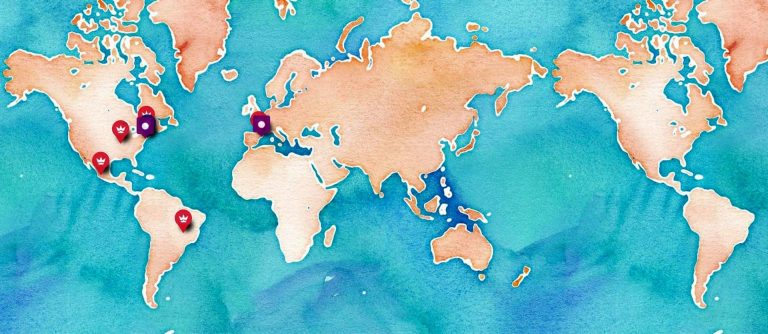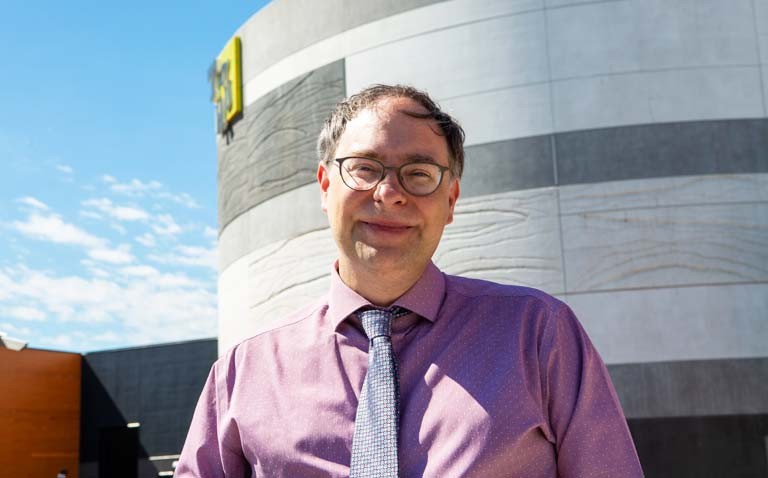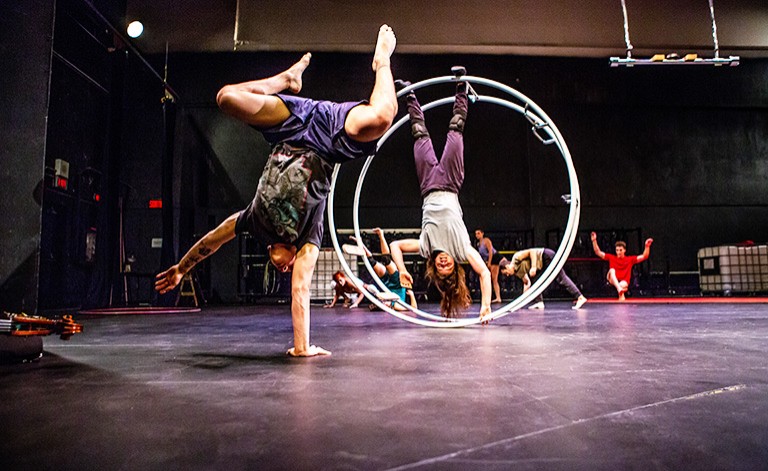Circus research team creates a global stories map

The fourth international graduate seminar in circus research, “Circus & Invention” was set to host 25 researchers from all over North America, Europe and South America. But like so many events in the COVID-19 era, it had to be cancelled.
The host of the seminar, Concordia’s Patrick Leroux is a frontrunner in circus scholarship. He’s also the associate dean of Research in the Faculty of Arts and Science and a professor in both the Department of English and Département d’études françaises.
“When I realized the seminar would be cancelled, my thoughts immediately went to the thousands of artists, previously on the road, exploring the world, training, pushing the limits of what is physically possible, now sitting at home,” says Leroux. “Meanwhile, my prospective students were writing from everywhere wondering what we might do instead, remotely.”
Leroux wondered, “Wouldn’t it be great if all these ‘grounded’ artists had a place to share their ideas in a focused manner, outside of Facebook, in a more useful context that would contribute to building both knowledge and a sense of community?”
 Patrick Leroux, associate dean of Research in the Faculty of Arts and Science.
Patrick Leroux, associate dean of Research in the Faculty of Arts and Science.
With other colleagues, Leroux was already working on a listing of all of the Québec cultural initiatives happening online but this particular opportunity would create a new space for dialogue and self-reflection during these strange times.
He recalled recently meeting Sébastien Caquard, associate professor in the Department of Geography, Planning and Environment and co-director of the Centre for Oral History and Digital Storytelling (COHDS), and learning about his research on mapping stories. If the purpose of the summer seminar was to share knowledge within the global circus community, perhaps building a story map was a way of helping that community stay connected. The recent news that Cirque du Soleil is seeking protection from its creditors is a measure of the COVID-19 pandemic's impact on the circus world.
“The mapping project grew out of a sense of concern for the circus community I’ve been working with and studying over the past decade,” says Leroux.
“The project is a timely one, as the artists are at home, their lives have been put on hold. Meanwhile they are not necessarily training and they are unsure of when live performances will even start again. Hopefully, this will be interesting for them as a way to reconnect and to contribute something to collective memory-mapping.”
With the help of Caquard, Leroux’s circus research team took the necessary steps to figure out the project, articulate it and set up the map. When they reached out to essential community partners, they found everyone was keen to participate.

The Circus Stories Map will use an interactive open-source participatory mapping platform called uMap, and will be populated with three types of stories: contemporary circus stories, historical stories about particular circus sites, and COVID-19 related stories.
A series of hackathons will be used to collect data, allowing the mapping team to create time-based events and encourage the community to submit as many of their stories about significant circus sites and experiences as possible.
The official launch of the map will take place during Montréal Complètement Cirque’s virtual international marketplace industry event (MICC) on July 8.
Concordia’s 4TH Space will host a webinar on July 9 at 3:30 p.m., 24 hours into the first hackathon. It will bring together moderators from Canada, the USA, France, England, Mexico, Brazil and other countries to discuss emerging storytelling trends and notable absences.
“Once the stories are submitted, they are checked by a native speaker to make sure the content is relevant for the project, and if so, it will appear on the map right away,” Caquard explains. “This structure has been designed to be as simple as possible for the storyteller with a minimum of human intervention in the back end.”
“That said, automatizing the process required quite a bit of computing work that was done by two PhD students: Alison Bowie (Humanities) and José Alavez (Geography, Planning and Environment).”
“What is really exciting about this project,” says Caquard, “is that it could offer access to circus stories from all over the world through one specific entry point: the map. In a domain such as the circus, in which people and companies are often in movement between places, what is left of these moments is memories, rather than buildings or monuments, and mapping these memories can help to make them more tangible, more visible, more accessible.”
Anna Vigeland, a research assistant who’s pursuing an interdisciplinary MA with the Individualized (INDI) program, is most excited about the participatory and multilingual platform, which opens with English, French, Spanish, Brazilian Portuguese and Chinese. At a later date, it will also include simplified Russian.
“Even the historical stories will carry the voice of the contributors,” says Vigeland. “It should really make for a fluid, growing, and multi-voiced platform.”
Leroux’s team also looks forward to exploring the possibility of holding more thematic hackathons, allowing the various circus groups to fill the map along their specialized fields, such as festivals, schools and social circus movements, among others.
Join the “Deepening your Circus Knowledge” panel discussion with Louis Patrick Leroux on July 8 at 2 p.m. The discussion launches The World Circus and Stories Mapping Project as part of International Market of Contemporary Circus. Register for free.
On July 9 at 3:30 p.m., 4TH SPACE will host a webinar The World Circus and Stories Mapping Project Conversation with international guest-moderators. Register for free.
Find out more about the Circus Stories Mapping Project, and submit your story.


